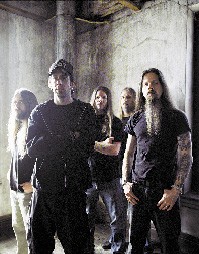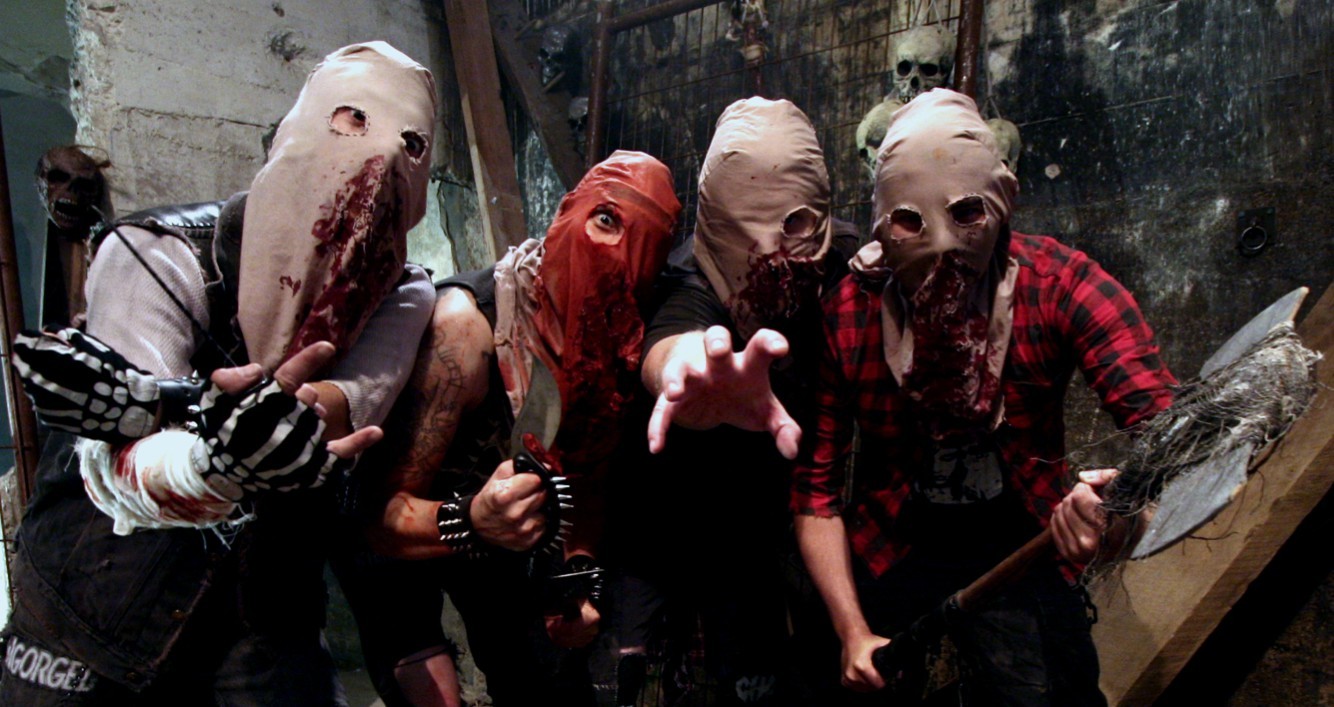Medium-profile metal shows still come in big packages, and the one offered Wednesday, April 4th, at the New Daisy Theatre is no exception. Putting Lamb of God, Trivium, Machine Head, and Gojira together on one bill in 2007 gives the fan of extreme and semi-extreme metal a lot to chew on, despite the possible lack of crossover fandom among these four acts. There are glaring differences in sound and background among these bands, but one thing that unites them — particularly Lamb of God and Trivium — is how they illustrate the current metal landscape, which allows acts with noncommercial sounds to achieve unheard-of levels of popularity.
Certainly, 2006 was a good year for Lamb of God. The Richmond, Virginia, foursome released Sacrament, their fourth album and second for a major (Epic), last August. It clocked a respectable 200,000 units before the end of the year. (By comparison, Mastodon’s Blood Mountain did 75,000 in the same amount of time.) Not bad for a band that used to be called Burn the Priest and hasn’t significantly compromised its sound, which mates the thrash of Slayer, the antagonizing, bar-fight swagger of Pantera, and the brutality of true death metal. Those numbers may not amount to much for a mainstream rock act, but this is no mainstream rock act. Without regular radio or MTV2 play, Lamb of God have cultivated a nice grassroots fan base. And, perhaps counterintuitively, the tremors currently rattling the music industry have actually been beneficial to bands like these. With popular artists, major labels are moving such pathetic numbers due to digital piracy and the fall of the big-box retailer that they are turning some attention to the rabid fandom that follow bands such as Lamb of God, along with the similarly minded Mastodon and Shadow’s Fall (both recently signed to majors).
More than any other band on this bill, Orlando’s Trivium are probably the mid-’00s answer to ’90s-style nü-metal, which doesn’t mean they incorporate hip-hop, or wear backward baseball caps, or write lyrics that rival a high school kid’s poetry, or sound anything like Korn. Instead, they incorporate more contemporary trends into the metal template, injecting emo-style singing and slicked-up posturing into a blueprint rife with traditional thrash 
Lamb of God
(think early Metallica) and death-metal elements. In the end, they’re not too far from what punk label Victory Records (Comeback Kid, Aiden) is so adept at peddling. With a lack of real underground, long-suffering integrity or a challenging, original sound, Trivium could soon be at the forefront of a movement commercially and credibly similar to the one that desecrated the word “metal” a decade ago.
Machine Head have not always been the band that they are on the newly released The Blackening. Though, in fact, Machine Head were pretty close to being this band in 1992, when their thrashy, borderline death-metal debut, Burn My Eyes, garnered a degree of attention for combining those influences with a subtle salute to the burgeoning modern-rock explosion.
Machine Head were created from the ashes of the highly respected but slightly obscure late-’80s Bay Area thrash troop Vio-Lence. Not a bad set of credentials. But sadly, for a stretch of albums in the mid-’90s, Machine Head took a detour and got lost. They were the antithesis of extreme metal, soon becoming one of the many poster children of numbskull nü-metal. Machine Head even had a massive, awful hit in 1999 with the song “From This Day.” These days, the least convincing thing to read in metal music writing is another tale of an aging band returning to its more brutal roots, but this appears to genuinely be the case with The Blackening. Take out the thick 2007 production qualities and a sissy vocal misstep or two (think poor man’s Tool), and this record manages to capture the feel of classic technical thrash circa 1990, when thrash metal got really heavy and complex, such as with mid-period albums by the highly influential Death (the band) or Slayer’s Seasons in the Abyss.
The relatively unknown and new-ish French band Gojira (the name is French for “Godzilla”) open the New Daisy show with a noise that will either confound or win over the crowds that are there to see the more established acts. With what may be the bill’s most interesting sound, Gojira’s lumbering riffage owes a debt or four to Isis and Neurosis, but the complex time changes speed up and complicate those band’s slower natures, creating a very odd form of technical death metal with serious progressive-rock overtones.
A little something for all fans of heavy and intense? Well, if your threshold for “heavy” and “intense” stops at the Deftones, Static-X, or System of a Down, you should know that this cross-section of modern metal is a step up in terms of quality and volume — so maybe it’s time to take a step up.


 Ghoul play the Hi-Tone this Tuesday.
Ghoul play the Hi-Tone this Tuesday. 